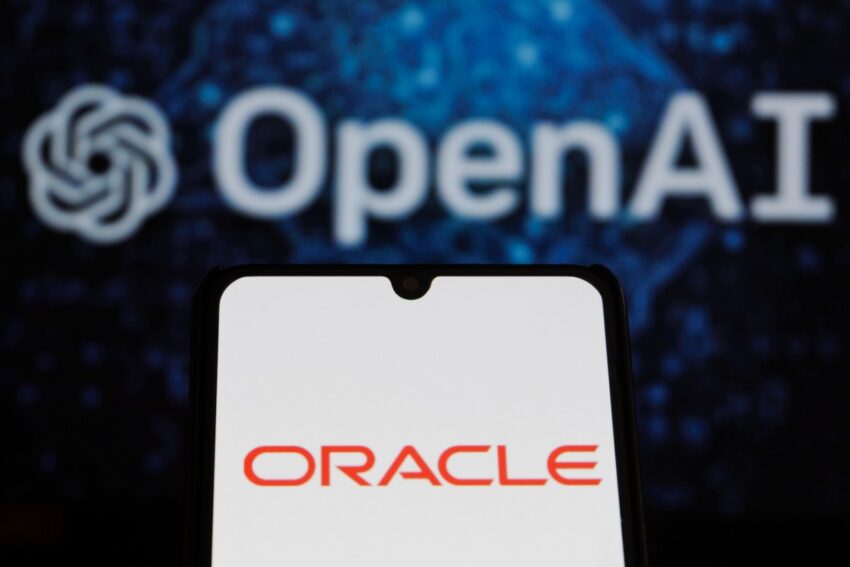
why the oracle-openai deal caught wall street The recent $300 billion deal between Oracle and OpenAI has sent shockwaves through Wall Street, highlighting Oracle’s significant role in the AI infrastructure landscape.
why the oracle-openai deal caught wall street
Overview of the Deal
In a surprising turn of events, Oracle has entered into a monumental agreement with OpenAI, valued at an astonishing $300 billion. This deal underscores Oracle’s commitment to becoming a key player in the artificial intelligence sector, despite its long-standing reputation as a legacy technology provider. The partnership aims to leverage Oracle’s robust cloud infrastructure to support OpenAI’s advanced AI models, including the widely recognized ChatGPT.
Oracle’s Legacy and Transition
Founded in 1977, Oracle has long been synonymous with database management systems and enterprise software. Over the decades, the company has evolved, but its legacy status often leads to skepticism regarding its adaptability to emerging technologies like AI. However, this deal signals a shift in perception. Oracle is not merely a relic of the past; it is actively positioning itself at the forefront of AI infrastructure.
Oracle’s cloud services have seen significant growth in recent years, driven by increasing demand for scalable and efficient computing resources. The company has invested heavily in its cloud capabilities, making it a viable competitor against giants like Amazon Web Services (AWS) and Microsoft Azure. This deal with OpenAI is a strategic move to further enhance its offerings and solidify its place in the AI ecosystem.
Implications for OpenAI
OpenAI, known for its groundbreaking work in artificial intelligence, has been on a trajectory of rapid growth and innovation. The partnership with Oracle is expected to provide OpenAI with the necessary infrastructure to scale its operations and improve the performance of its AI models. However, several key questions arise regarding the implications of this deal for OpenAI.
Financial Considerations
One of the most pressing concerns is how OpenAI will finance its obligations under this deal. The $300 billion valuation is staggering, and it raises questions about the sustainability of OpenAI’s business model. Historically, OpenAI has relied on a combination of funding from investors and partnerships to support its research and development efforts. With this new partnership, OpenAI will need to clarify its financial strategy moving forward.
Analysts are particularly interested in how OpenAI plans to monetize its AI capabilities in conjunction with Oracle’s infrastructure. The integration of OpenAI’s models into Oracle’s cloud services could create new revenue streams, but the specifics of this monetization strategy remain unclear. Stakeholders are eager to see how OpenAI will balance its research ambitions with the commercial realities of such a large-scale partnership.
Technical Integration
The technical aspects of integrating OpenAI’s models with Oracle’s cloud infrastructure also warrant attention. OpenAI’s models require substantial computational resources, and Oracle’s cloud services must be optimized to handle these demands. This integration will not only impact the performance of OpenAI’s models but also influence the overall user experience for customers utilizing these AI capabilities through Oracle’s platform.
Moreover, the collaboration may lead to advancements in AI research and development. By combining Oracle’s extensive resources with OpenAI’s cutting-edge technology, the two companies could potentially accelerate the pace of innovation in the AI field. This partnership could also foster new applications and use cases for AI across various industries, from healthcare to finance.
Market Reactions
The announcement of the Oracle-OpenAI deal has elicited a range of reactions from investors and analysts. While some view it as a bold move that could reshape the AI landscape, others express caution regarding the long-term viability of such a massive agreement.
Positive Sentiment
Proponents of the deal argue that it positions both companies favorably in a rapidly evolving market. Oracle’s established presence in the enterprise sector, combined with OpenAI’s innovative technology, creates a powerful synergy that could lead to significant advancements in AI applications. Investors who are optimistic about the future of AI are likely to see this partnership as a strategic alignment that enhances both companies’ prospects.
Concerns and Skepticism
Conversely, some market analysts have raised concerns about the feasibility of the deal. The sheer scale of the $300 billion valuation prompts questions about whether Oracle can effectively manage the integration of OpenAI’s technology into its existing infrastructure. Additionally, the financial implications for OpenAI remain a focal point of skepticism. Investors are keen to understand how OpenAI plans to generate revenue from this partnership and whether it can sustain its growth trajectory in the face of such a significant commitment.
Broader Context in the AI Industry
The Oracle-OpenAI deal is not occurring in a vacuum; it reflects broader trends within the AI industry. As companies increasingly recognize the transformative potential of AI, partnerships and acquisitions have become commonplace. Major players are vying for a competitive edge, and collaborations like this one are indicative of the industry’s direction.
Competitive Landscape
Oracle’s move to partner with OpenAI places it in direct competition with other tech giants that are also investing heavily in AI. Companies like Google, Microsoft, and Amazon are continuously enhancing their AI capabilities, making the landscape increasingly competitive. This deal may prompt other companies to reevaluate their strategies and consider similar partnerships to stay relevant in the evolving market.
Future of AI Infrastructure
The partnership also raises questions about the future of AI infrastructure. As AI models grow in complexity and demand for computational power increases, the need for robust infrastructure becomes paramount. Oracle’s collaboration with OpenAI could set a precedent for how companies approach AI infrastructure moving forward. The success of this partnership may influence how other organizations structure their own AI initiatives and collaborations.
Conclusion
The Oracle-OpenAI deal represents a significant development in the AI landscape, with the potential to reshape the industry. While the partnership brings exciting possibilities for both companies, it also raises critical questions about financial sustainability, technical integration, and market dynamics. As stakeholders await further clarity on these issues, the deal serves as a reminder that legacy companies like Oracle can still play a pivotal role in the rapidly evolving world of artificial intelligence.
Source: Original report
Was this helpful?
Last Modified: September 13, 2025 at 1:40 am
1 views















